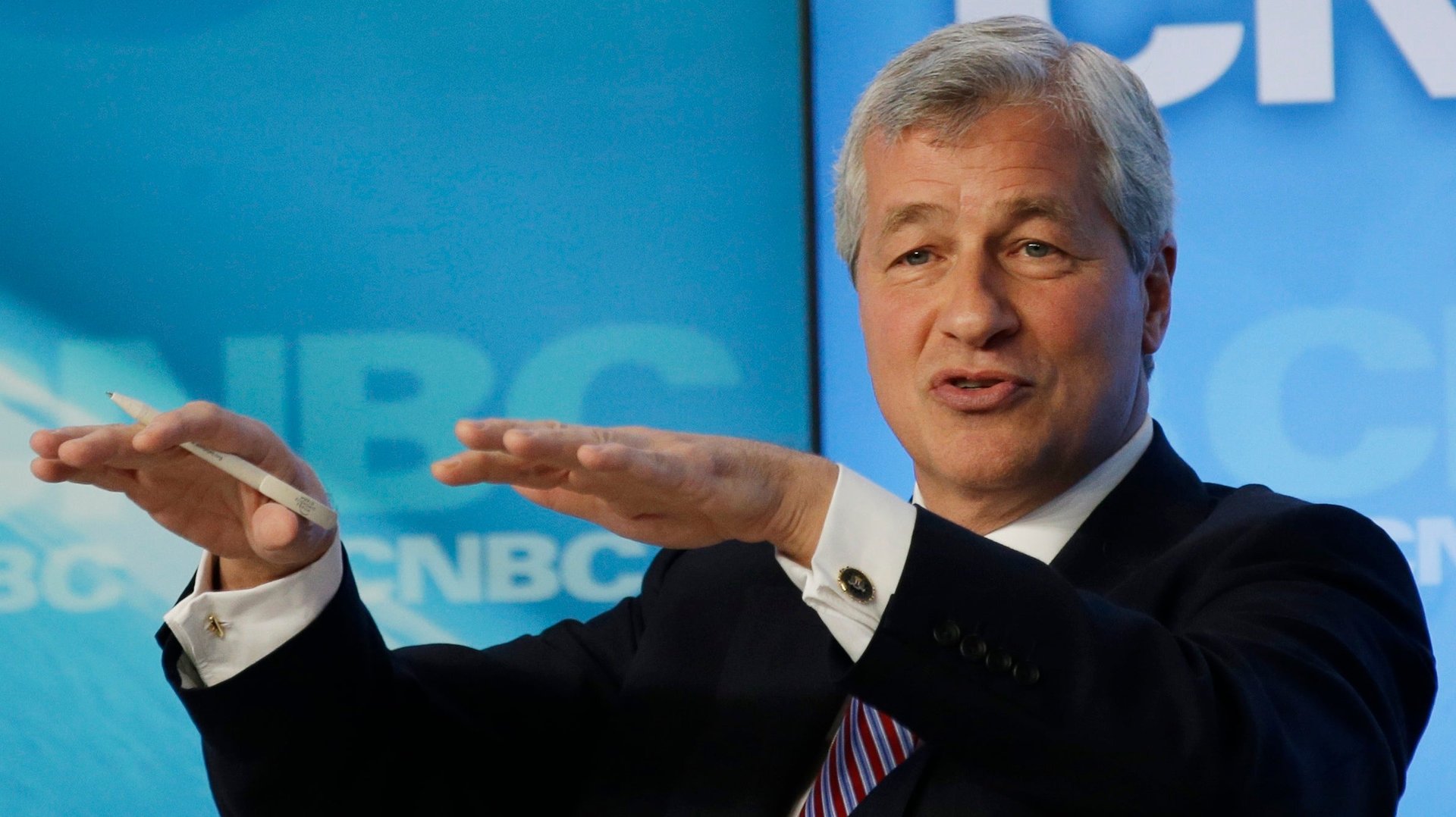Jamie Dimon’s dad got a raise (a big one)
Who says Wall Street isn’t a family-friendly place?


Who says Wall Street isn’t a family-friendly place?
Three years ago, when a broker in his late 70s left Bank of America for JPMorgan Chase, it made a few headlines: The broker’s name was Theodore “Ted” Dimon, and he’s the father of Jamie Dimon, JPMorgan’s chairman and chief executive.
We now learn that Dimon père got a big raise in the same year that his son—who has run into a bit of a rough patch lately—saw his pay drop.
The elder Dimon, now in his early 80s, earned $1.6 million in 2012, according to the proxy that JPMorgan filed a little after 2:30 p.m. April 10, ”including annual salary, commissions, and an equity award.” That’s more than triple the $447,000 he made in 2011 and the $425,000 he earned in 2010 (both “including annual salary and commissions based on production revenue”); pay for 2009 wasn’t disclosed. By contrast, the younger Dimon didn’t get a bonus for last year, and so saw his total pay fall to $18.7 million last year from $23.1 million the year before (and $21 million in 2010). The bank declined a request to comment.
Family ties on Wall Street are nothing new, of course. JPMorgan also discloses that one of its equity analysts, making $1.65 million last year, is a sibling of Douglas L. Braunstein, the company’s vice chairman and former chief financial officer. Goldman Sachs noted in its proxy last year that a child of chairman and CEO Lloyd Blankfein worked for the company and earned $135,000 in 2011.
Companies don’t have much choice when it comes to these kinds of disclosures. Item 404 of Regulation S-K requires them to disclose any transaction over $120,000 in a year with “related persons”—a category that includes not only parents and siblings, but also inlaws, step-parents, and a wide range of companies and other organizations affiliated with corporate executives and directors.